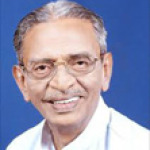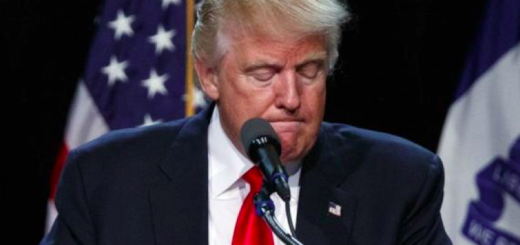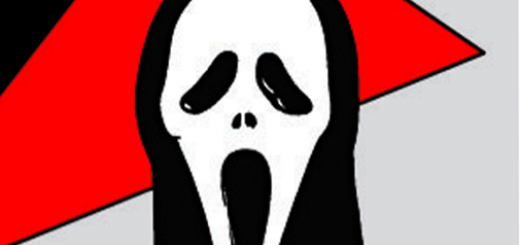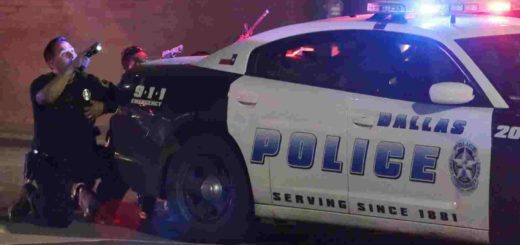Daniel J. Berrigan, Defiant Priest Who Preached Pacifism, Dies at 94

Anti-Vietnam War was his forte – By DANIEL LEWIS, in NY Times, APRIL 30, 2016
Rev. Daniel J. Berrigan gave an anti-war sermon at St. Patrick’s Cathedral in New York, 1972.CreditWilliam E. Sauro/The New York Times
(Note: During Vietnam war this scribe happened to be studying Journalism at Marquette, U, USA and I too was totally against Vietnam war, and in that sense with Fr. Berrigan even when my class mates ridiculed me at that time. I could hardly stomach when some of the dailies there were writing glorifying the war and saying to the effect: “Even a thousand Vietnamese or Asian lives can’t be the worth of an American soldier.” It was an example of embedded or “my country right or wrong” journalism praised mostly in US, also in India.
His description of an unjust society –linked to racism, poverty, militarism and capitalist greed – is true today as it was in his time. “One had to keep trying to do the right thing regardless of results,” was his motto, it should be of every honest person. He was not a card-carrying communist, but had sympathies for them, may be because of their sympathies for the poor  and oppressed. He was also too critical of the Church hierarchy, Jesus was just that against the hierarchical priesthood of his times. May he continue to inspire those working for the downtrodden and against the insolent might of power structures in Church and society. james kottoor, editor)
and oppressed. He was also too critical of the Church hierarchy, Jesus was just that against the hierarchical priesthood of his times. May he continue to inspire those working for the downtrodden and against the insolent might of power structures in Church and society. james kottoor, editor)
The Rev. Daniel J. Berrigan, a Jesuit priest and poet whose defiant protests helped shape the tactics of opposition to the Vietnam War and landed him in prison, died on Saturday in the Bronx. He was 94.
The United States was tearing itself apart over civil rights and the war in Southeast Asia when Father Berrigan emerged in the 1960s as an intellectual star of the Roman Catholic “new left,” articulating a view that racism and poverty, militarism and capitalist greed were interconnected pieces of the same big problem: an unjust society.
It was an essentially religious position, based on a stringent reading of the Scriptures that some called pure and others radical. But it would have explosive political consequences as Father Berrigan; his brother Philip, a Josephite priest; and their allies took their case to the streets with rising disregard for the law or their personal fortunes.
A defining point was the burning of Selective Service draft records in Catonsville, Md., and the subsequent trial of the so-called Catonsville Nine, a sequence of events that inspired an escalation of protests across the country; there were marches, sit-ins, the public burning of draft cards and other acts of civil disobedience.
 Father Berrigan, right and his brother Philip Berrigan seized hundreds of draft records and set them on fire with homemade napalm in 1968. CreditUnited Press International
Father Berrigan, right and his brother Philip Berrigan seized hundreds of draft records and set them on fire with homemade napalm in 1968. CreditUnited Press International
The catalyzing episode occurred on May 17, 1968, six weeks after the murder of the Rev. Dr. Martin Luther King Jr. and the outbreak of new riots in dozens of cities. Nine Catholic activists, led by Daniel and Philip Berrigan, entered a Knights of Columbus building in Catonsville and went up to the second floor, where the local draft board had offices. In front of astonished clerks, they seized hundreds of draft records, carried them down to the parking lot and set them on fire with homemade napalm.
Some reporters had been told of the raid in advance. They were given a statement that said in part, “We destroy these draft records not only because they exploit our young men but because they represent misplaced power concentrated in the ruling class of America.” It added, “We confront the Catholic Church, other Christian bodies and the synagogues of America with their silence and cowardice in the face of our country’s crimes.”
In a year sick with images of destruction, from the Tet offensive in Vietnam to the murder of Dr. King, a scene was recorded that had been contrived to shock people to attention, and did so. When the police came, the trespassers were praying in the parking lot, led by two middle-aged men in clerical collars: the big, craggy Philip, a decorated hero of World War II, and the ascetic Daniel, waiting peacefully to be led into the van.
Protests and Arrests
In the years to come, well into his 80s, Daniel Berrigan was arrested time and again, for greater or lesser offenses: in 1980, for taking part in the Plowshares raid on a General Electric missile plant in King of Prussia, Pa., where the Berrigan brothers and others rained hammer blows on missile warheads; in 2006, for blocking the entrance to the Intrepid naval museum in Manhattan.“The day after I’m embalmed,” he said in 2001, on his 80th birthday, “that’s when I’ll give it up.”
Father Berrigan being handcuffed in 2001 after he and others blocked an entrance to the Intrepid Sea, Air and Space Museum in Manhattan. Credit – Richard Drew/Associated Press
It was not for lack of other things to do. In his long career of writing and teaching at Fordham and other universities, Father Berrigan published a torrent of essays and broadsides and, on average, a book a year, almost to the time of his death.
Among the more than 50 books were 15 volumes of poetry — the first of which, “Time Without Number,” won the prestigious Lamont Poetry Prize, given by the Academy of American Poets, in 1957 — as well as autobiography, social criticism, commentaries on the Old Testament prophets and indictments of the established order, both secular and ecclesiastic.
While he was known for his wry wit, there was a darkness in much of what Father Berrigan wrote and said, the burden of which was that one had to keep trying to do the right thing regardless of the near certainty that it would make no difference. In the withering of the pacifist movement and the country’s general support for the fighting in Iraq and Afghanistan, he saw proof that it was folly to expect lasting results. “This is the worst time of my long life,” he said in an interview with The Nation in 2008. “I have never had such meager expectations of the system.”What made it bearable, he wrote elsewhere, was a disciplined, implicitly difficult belief in God as the key to sanity and survival.
But his place in the public imagination was pretty much fixed at the time of the Catonsville raid, as the impish-looking half of the Berrigan brothers — traitors and anarchists in the minds of a great many Americans, exemplars to those who formed what some called the ultra-resistance.
After a trial that served as a platform for their antiwar message, the Berrigans were convicted of destroying government property and sentenced to three years each in the federal prison in Danbury, Conn. Having exhausted their appeals, they were to begin serving their terms on April 10, 1970.
Father Berrigan, right, and a defense lawyer, William M. Kunstler, center, after he was sentenced to three years in federal prison in Danbury, Conn. CreditAssociated Press
Instead, they raised the stakes by going underground. The men who had been on the cover of Time were now on the Federal Bureau of Investigation’s most-wanted list. As Daniel explained in a letter to the French magazine Africasia, he was not buying the “mythology” fostered by American liberals that there was a “moral necessity of joining illegal action to legal consequences.” In any case, both brothers were tracked down and sent to prison.
When he was a young boy, the family moved to a farm near Syracuse to be close to his father’s family.In his autobiography, “To Dwell in Peace,” Daniel Berrigan described his father as “an incendiary without a cause,” a subscriber to Catholic liberal periodicals and the frustrated writer of poems of no distinction.“Early on,” he wrote, “we grew inured, as the price of survival, to violence as a norm of existence. I remember, my eyes open to the lives of neighbors, my astonishment at seeing that wives and husbands were not natural enemies.”
Battles With the Church
Sent for a year of study and ministerial work in France, he met some worker-priests who gave him “a practical vision of the Church as she should be,” he wrote. Afterward he spent three years at the Jesuits’ Brooklyn Preparatory School, teaching theology and French. But he was not to become a pastoral poet or live the retiring life he had imagined. His ideas were simply turning too hot, sometimes even for friends and mentors like Dorothy Day, the co-founder of the Catholic Worker Movement, and the Trappist intellectual Thomas Merton.
At Le Moyne College in Syracuse, where he was a popular professor of New Testament studies from 1957 to 1963, Father Berrigan formed friendships with his students that other faculty members disapproved of, inculcating in them his ideas about pacifism and civil rights. (One student, David Miller, became the first draft-card burner to be convicted under a 1965 law.)
Father Berrigan was effectively exiled in 1965, after angering the hawkish Cardinal Francis Spellman in New York. Besides Father Berrigan’s work in organizing antiwar groups like the interdenominational Clergy and Laymen Concerned About Vietnam, there was the matter of the death of Roger La Porte, a young man with whom Father Berrigan said he was slightly acquainted.
For the Jesuits, Father Berrigan was both a magnet to bright young seminarians and a troublemaker who could not be kept in any one faculty job too long.At onetime or another he held faculty positions or ran programs at Union Seminary, Loyola University New Orleans, Columbia, Cornell and Yale. Eventually he settled into a long tenure at Fordham, the Jesuit university in the Bronx, where for a time he had the title of poet in residence.
Father Berrigan was released from the Danbury penitentiary in 1972; the Jesuits, alarmed at his failing health, managed to get him out early. He then resumed his travels.After visiting the Middle East, he bluntly accused Israel of “militarism” and the “domestic repressions” of Palestinians. His remarks angered many American Jews. “Let us call this by its right name,” wrote Rabbi Arthur Hertzberg, himself a contentious figure among religious scholars: “old-fashioned theological anti-Semitism.”
Nor was Father Berrigan universally admired by Catholics. Many faulted him for not singling out repressive Communist states in his diatribes against the world order, and later for not lending his voice to the outcry over sexual abuse by priests. Not the least of his long-running battles was with the church hierarchy. He was scathing about the shift to conservatism under Pope John Paul II and the “company men” he appointed to high positions.
Father Berrigan seemed to reach a poet’s awareness of his place in the scheme of things, and that of his brother Philip, who left the priesthood for a married life of service to the poor and spent a total of 11 years in prison for disturbing the peace in one way or another before his death from cancer in 2002. While they both still lived, Daniel Berrigan wrote:
My brother and I stand like the fences of abandoned farms, changed times too loosely webbed against deicide homicide A really powerful blow would bring us down like scarecrows.Nature, knowing this, finding us mildly useful indulging also her backhanded love of freakishness allows us to stand.


















